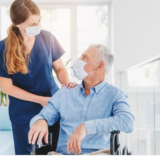Is Therapy Important In Treating Drug Addiction: What Experts Say
Introduction
Yes, medical detoxification is a big part of people’s drug recovery treatment. So then, why do we need therapy, you ask?
Why do we need therapy when we cure something that clearly affects our body? The answer is simple: our body is interlinked with our mind, and although it is our body that is being affected by this disease, the mind is constantly asking it to consume these substances.
Therapy is that step to understand the underlying problem of addiction. There are family therapies, individual therapies, and group therapies when you are recovering from drug addiction, and all of them have particular reasoning behind them.
This is the reason why every rehabilitation center always has a mandatory therapy step. Before we understand why therapy is so important for drug recovery, let us first understand the different therapy sessions that a patient has to attend. To know more about the other recovery steps, check out this website.
The Different Therapy Sessions In A Drug Rehabilitation Center
Here are the three types of therapy sessions which can help a patient suffering from drug addiction.
1. Individual Therapy
This is the first therapy session that a patient will essentially attend. This is to understand the cognitive-behavioral changes that a patient might have during their period of drug abuse.
This also helps the professional to understand the deep-rooted reason behind their substance abuse. An extensive report is then created to help the other medical professionals who are supervising the patients.
2. Group Therapy
This is the second therapy session that a patient is asked to take. This induces peer-to-peer motivation. They are introduced to other patients who might be going through the same problem.
As a result, they are allowed to think differently about their own situation and not have to feel the pain of isolation anymore. They can hear the success stories of others and learn; the struggles will make them become a part of something.
3. Family Therapy
Sometimes our family could be a reason behind overt drug usage. It could be the family environment that triggers the person and leads them to their addiction.
These deep-seated issues are talked about and resolved with a therapist in family therapy sessions. These family therapies are also applicable after the recovery so that the family environment does not induce any relapses for the recently cured patient.
Why Therapy Is Required In A Drug Rehabilitation Center
Underneath elaborated are the crucial reasons why a drug rehabilitation needs to have a therapy unit.
1. Motivation
Motivation is the strongest element that pushes the patient towards sobriety and protects them from constant relapses. This is one of the reasons why therapy is so essential.
During recovery, the therapy can study the patient’s mental condition and constantly motivate them to push forward. These therapy sessions also advise upon a holistic approach to recovery and suggest the patient activities like yoga, meditation, journaling their journey.
2. Cognitive Therapy
Patients suffering from drug addiction are half of the time confused about their condition. They have less to no control over their moods because they do not know what they are feeling most of the time.
Cognitive-behavioral treatment is an extensive therapy that teaches the patient to recognize their own behavior. It is not just about the professional understanding that there is a problem; it is also about the patient being familiar with their condition.
Through experimentation, they are introduced to their triggers and how to get rid of them with time.
3. Contingency Management
Even during recovery, patients will have too many urges to get back to their old habits. Through contingency management, people are taught to follow in the footsteps of sobriety without getting diverted.
This therapy will teach methods of staying clean by introducing tiny milestones and rewards on successes.
4. Manage Dialectical Behaviour
This is a therapy session usually carried out after the patient starts getting withdrawal issues. This is when they crave these substances the most, and these sessions are meant to teach them acceptance.
It can also help to treat some of the substances causing disorders in a much more natural way, rather than using the help of medicine. This is particularly helpful when you are treating someone with a heavy opioid addiction.
5. Peer-To-Peer Motivation
This is a strategy used in the rehabilitation centers where most of these patients suffering from the same addiction are put together. These group therapies induce a sense of collectiveness and empathy.
As a result, peer-to-peer motivation begins where they see the suffering and success of other people. A sense of friendship and socialization is also created, which helps patients stay on the path of sobriety.
6. Manage behavioral issues
Whenever a person suffers from drug addiction, their social cognitive behavior suffers the most. They can get more irritated and start having severe anger issues. Therefore, along with detoxifying the body, the mind has to be cleaned as well.
The therapist will help them recognize the problems and become more enthusiastic in the route to sobriety as well. They will learn how to socialize again and have a life without the influence of such dangerous substances.
This is time by prescribing simple holistic activities like daily walking, yoga, and journaling their journey.
7. Combating Withdrawal Issues
Withdrawal can get severe to the point of seizures for some patients when it comes to drug addiction. Although these can be combated with the help of medicine, uprooting the triggers and problems from within is very important.
Only a therapist can do this by simple conversation and analyzing the inside of their mental health to understand what is causing these symptoms.
Final Note
Therapy is an essential part of drug rehabilitation, and some patients can be reluctant about it at first. Talking about their addiction might not be very comfortable.
However, with the nurture, care, and non-judgemental understanding provided by a therapist, they can definitely overcome it.
Soon they will be following the path of sobriety with their new life.









